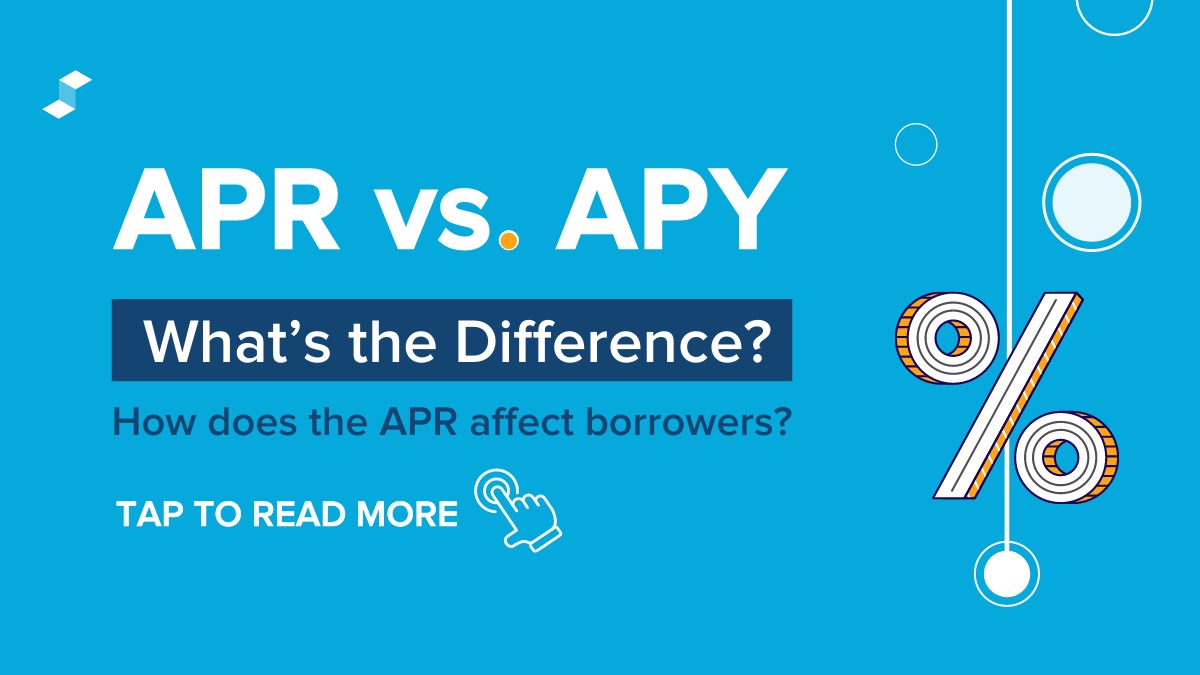Home>Finance>What Is The Difference Between People Who Fund Leveraged Buyouts And True Venture Capitalists?


Finance
What Is The Difference Between People Who Fund Leveraged Buyouts And True Venture Capitalists?
Modified: December 30, 2023
Discover the distinction between individuals funding leveraged buyouts and true venture capitalists in the finance world. Explore their unique approaches and strategies.
(Many of the links in this article redirect to a specific reviewed product. Your purchase of these products through affiliate links helps to generate commission for LiveWell, at no extra cost. Learn more)
Table of Contents
Introduction
In the world of finance and investment, there are various ways in which companies can secure funding for their operations and growth. Two popular avenues for funding are leveraged buyouts (LBOs) and venture capital (VC). While both involve investors providing capital to companies, there are significant differences between those who fund LBOs and true venture capitalists. Understanding these differences can help entrepreneurs and business owners determine the most suitable funding source for their specific needs.
Leveraged buyouts (LBOs) are transactions in which an investor or group of investors acquires a company, typically with a significant amount of borrowed funds. The primary goal of an LBO is to restructure the acquired company and improve its financial performance, often with the intention of selling it at a profit in the future. On the other hand, venture capital (VC) involves investors providing capital to early-stage or high-growth companies in exchange for equity. The focus of VC funding is to support companies with the potential for high returns on investment, often in innovative or technology-driven industries.
Now, let’s dive deeper into the key differences between those who fund LBOs and true venture capitalists and explore how their approaches, risks, and investment strategies vary. By understanding these distinctions, entrepreneurs and business owners can make more informed decisions about potential sources of funding for their ventures.
Definition of Leveraged Buyouts (LBOs)
Leveraged buyouts, commonly referred to as LBOs, are a type of acquisition in which an investor or a group of investors acquires a company using a significant amount of borrowed funds. In an LBO, the acquiring party typically provides a smaller portion of the purchase price as equity and secures the remaining funds through debt financing, often using the assets of the target company as collateral. The acquired company’s cash flow and assets are then used to repay the debt over time.
The main objective of an LBO is to maximize the financial returns for the acquiring party by improving the performance and profitability of the target company. This is done through various strategies such as cost-cutting, operational restructuring, and implementing more efficient business practices. By increasing the company’s value, the LBO investor aims to sell it at a higher price, either through an initial public offering (IPO) or by selling it to another investor or company.
Leveraged buyouts are often pursued for larger, established companies that have stable cash flows and are deemed suitable for restructuring and expansion. The target company’s assets and future earnings potential serve as the primary sources of collateral for the debt used in the transaction. Additionally, LBOs are commonly undertaken by private equity firms, which specialize in acquiring and managing companies with the aim of generating substantial returns for their investors.
It is important to note that leveraged buyouts involve a higher level of financial risk compared to other types of acquisitions. The heavy reliance on debt financing means that any adverse changes in the company’s performance or economic conditions could pose challenges in repaying the borrowed funds. However, if successful, LBOs can result in significant financial gains for the investor due to the utilization of leverage and the potential for value enhancement through operational improvements and restructuring.
Definition of Venture Capital (VC)
Venture capital (VC) refers to a form of private equity financing where investors provide capital to early-stage or high-growth companies in exchange for equity or ownership stakes. The primary objective of venture capitalists is to identify innovative and promising companies and support their growth and development. Unlike traditional forms of financing, such as bank loans or public offerings, venture capital funding is typically provided to companies that have limited operating history but high potential for rapid expansion.
Venture capitalists play a crucial role in funding and nurturing startups and small businesses by providing not only financial resources but also strategic guidance and industry expertise. They often invest in sectors like technology, biotech, and other emerging industries, where there is a higher degree of uncertainty and risk but also the potential for significant returns on investment.
VC investments take place in different stages, including seed funding, early-stage funding, and growth or expansion funding. Seed funding is usually provided to companies at the idea or concept stage, where the funds are used to develop a minimum viable product or proof of concept. Early-stage funding is for companies that have already demonstrated market potential and need capital to fuel their growth. Growth or expansion funding is provided to companies that have a proven business model and are looking to scale their operations.
Venture capitalists not only provide financial support but also actively engage with the companies they invest in. They often take a seat on the company’s board of directors and provide strategic guidance and industry connections. Their involvement goes beyond just funding, as they aim to help the company navigate challenges, overcome obstacles, and secure future rounds of financing.
It is important to note that venture capital investments come with inherent risks. Startups and early-stage companies face a higher failure rate compared to more established businesses. Venture capitalists understand these risks and invest in a diversified portfolio to mitigate potential losses. While the majority of investments may not lead to significant returns, the success of a few lucrative investments can offset the losses and generate substantial profits for venture capitalists.
Overview of Funding Sources
When it comes to funding a company, there are various sources available, each with its own characteristics and requirements. Understanding these different funding sources can help entrepreneurs and business owners determine the most appropriate option for their specific financing needs. Let’s take a closer look at the common funding sources for companies:
- Bootstrapping: This refers to self-funding, where entrepreneurs use their personal savings or resources to finance their business. Bootstrapping allows for full control and ownership but may limit the ability to scale quickly due to constrained resources.
- Friends and Family: Entrepreneurs often turn to their close network of friends and family for initial financing. These individuals may provide loans, gifts, or even purchase equity in the company. While this source can be more flexible and supportive, it is essential to maintain clear communication and expectations to avoid strained relationships.
- Bank Loans: Traditional bank loans are a common form of debt financing. Companies can obtain loans based on their creditworthiness and collateral. Bank loans offer fixed interest rates and repayment terms, but stringent requirements and interest payments can put a strain on cash flow.
- Angel Investors: Angel investors are wealthy individuals who invest their own money in early-stage or high-growth companies. They are often experienced entrepreneurs or industry experts who provide not only funding but also mentorship and connections. Angel investments typically come in exchange for equity or convertible debt.
- Venture Capital: Venture capital firms provide funding to startups and high-potential companies in exchange for equity. Venture capitalists specialize in identifying innovative companies and help them grow through funding and active involvement. VC funding is often sought for scalability and rapid growth but comes with higher expectations and potential dilution of ownership.
- Private Equity: Private equity (PE) firms invest in more established companies and focus on operational improvements and value creation. PE investments are often made through leveraged buyouts (LBOs), where a significant amount of borrowed funds are used to acquire the company. PE firms aim to improve the company’s performance and sell it at a higher valuation in the future.
- Crowdfunding: Crowdfunding platforms allow entrepreneurs to raise capital from a large pool of individuals in exchange for pre-sales, equity, or rewards. It is a way to generate awareness and support for a product or idea while securing financing.
Each funding source has its own advantages and considerations. The choice depends on factors such as the stage of the business, financing requirements, growth potential, risk appetite, and desired level of control. Entrepreneurs should carefully evaluate each option and consider seeking professional advice to navigate the complexities of securing funding for their ventures.
Key Differences between LBO Investors and True Venture Capitalists
While LBO investors and venture capitalists both provide funding to companies, there are significant differences in their investment approaches, risk appetites, and desired outcomes. Understanding these distinctions can help entrepreneurs determine the most suitable funding source for their specific business needs. Let’s explore the key differences between LBO investors and true venture capitalists:
- Investment Approach: LBO investors focus on acquiring established companies that are undervalued or undergoing operational challenges. They aim to improve the company’s financial performance and sell it at a profit. In contrast, venture capitalists target early-stage or high-growth companies with innovative ideas or disruptive technologies. They provide capital to support the company’s growth and expansion.
- Risk Appetite: LBO investors typically take on less risk compared to venture capitalists. They invest in companies with existing cash flows and stable business models, minimizing the risk of failure. On the other hand, venture capitalists operate in a high-risk environment, funding startups that have a higher probability of failure but also the potential for significant returns if successful.
- Exit Strategies: LBO investors often plan for an exit through a sale of the company to another investor or by initiating an initial public offering (IPO). They seek to maximize the company’s value during their ownership period to generate a substantial return on their investment. Venture capitalists, on the other hand, may also consider exits through acquisitions or IPOs but often have a longer-term perspective, allowing for more flexibility in the timing of exits.
- Investment Time Horizon: LBO investments are generally made with a medium-term time horizon, typically ranging from five to seven years. The focus is on restructuring and improving the company’s operations during this period and then exiting for a profit. Venture capitalists, however, have a longer investment time horizon, often extending beyond seven years. They work with companies to foster growth and help them achieve their long-term strategic objectives.
- Types of Companies Funded: LBO investors typically target more mature companies with established cash flows and a track record of performance. They look for companies with potential for operational improvement and cost optimization. Venture capitalists, on the other hand, invest in early-stage or high-growth companies, often in sectors such as technology, biotech, and other innovative industries. They are willing to take risks on companies with disruptive ideas or breakthrough technologies.
It is important for entrepreneurs to understand these differences between LBO investors and venture capitalists when considering funding options. The choice depends on factors such as the stage of the business, industry dynamics, growth potential, risk tolerance, and desired level of involvement from the investor. By aligning with the right type of investor, entrepreneurs can benefit from both the financial resources and the strategic guidance necessary to propel their businesses forward.
Risk Appetite and Investment Approach
One of the key differences between LBO investors and true venture capitalists lies in their risk appetite and investment approach. Understanding these distinctions can help entrepreneurs determine the most suitable funding source based on their risk tolerance, business stage, and growth objectives.
LBO investors tend to have a lower risk appetite compared to venture capitalists. They typically seek to acquire established companies with stable cash flows and solid operating histories. By investing in companies that already generate revenue and have proven business models, LBO investors aim to minimize the risk of failure. They often focus on companies that are undervalued or undergoing operational challenges, with the intention of implementing strategic changes and improvements to enhance their profitability. The investment approach of LBO investors is centered around optimizing the company’s operations and financial performance to increase its value, ultimately leading to a profitable exit.
On the other hand, true venture capitalists operate in a high-risk, high-reward investment environment. They have a greater appetite for risk and seek to invest in early-stage or high-growth companies that have the potential for significant market disruption or rapid expansion. Venture capitalists understand that investing in such companies comes with a higher probability of failure. However, they are willing to take this risk because of the potential for exceptional returns on successful investments. These investors focus on identifying innovative ideas, breakthrough technologies, and talented management teams, with the goal of providing capital, strategic guidance, and network connections to help propel the company’s growth and market dominance.
Another aspect that differentiates the investment approach of LBO investors and venture capitalists is their time horizons. LBO investors typically have a medium-term investment horizon, typically ranging from five to seven years. During this period, they work to restructure and improve the company’s operations, aiming to enhance its financial performance and increase its value. The goal is to sell the company at a profit, either through a sale to another investor or an initial public offering (IPO). In contrast, venture capitalists have a longer-term perspective, often extending beyond seven years. They partner with early-stage companies and provide ongoing support to foster sustainable growth, with the expectation of achieving substantial returns over a more extended period. This longer investment horizon allows venture capitalists to navigate the ups and downs of the market, support the company through multiple stages of growth, and maximize its full potential before considering an exit strategy.
In summary, the risk appetite and investment approach of LBO investors and venture capitalists significantly differ. LBO investors aim to acquire established companies with stable cash flows, implementing operational improvements to enhance their profitability and value. Venture capitalists, on the other hand, target early-stage or high-growth companies with disruptive ideas, focusing on long-term sustainable growth and providing a higher risk tolerance for potential rewards. Understanding these differences can help entrepreneurs make informed decisions when seeking funding and aligning with the right investor based on their business stage, risk profile, and growth aspirations.
Exit Strategies
Exit strategies play a crucial role for both LBO investors and venture capitalists as they seek to realize their investments and generate returns. While the ultimate goal is to exit the investment with a profit, the specific strategies employed by these two types of investors differ based on their investment approach and time horizons.
LBO investors typically plan for an exit through a sale of the company or an initial public offering (IPO). They aim to maximize the value of the company during their ownership period by implementing strategic changes, improving operational efficiencies, and enhancing profitability. Once the desired level of value has been achieved, LBO investors seek potential buyers or work with investment banks to facilitate the sale of the company to another investor or a strategic buyer. Alternatively, if the market conditions are favorable, the LBO investor may choose to exit through an IPO, offering shares to the public and realizing the equity value of the company. The specific timing and method of exit are determined by a variety of factors, including market conditions, industry landscape, and investor objectives.
Venture capitalists also consider various exit strategies, but their approach tends to be more flexible due to their longer-term investment horizon. One common exit strategy for venture capitalists is through acquisitions. When a larger company identifies a potential synergy or sees value in acquiring a startup or high-growth company, venture capitalists may negotiate a sale of their equity stake. Acquisitions can provide an attractive exit option for venture capitalists if the purchase price exceeds their initial investment and generates a satisfactory return. Another exit strategy for venture capitalists is through an IPO. Going public allows the venture capitalist to sell their equity stake to the public markets and realize the value of their investment. However, IPOs are less common and typically pursued by companies that have achieved significant scale and market presence.
In addition to traditional exit strategies, alternative options have emerged in recent years. Strategic partnerships or alliances can provide an avenue for venture capitalists to exit their investments while maintaining an ongoing relationship with the company. This approach allows for potential synergies, knowledge transfer, and continued growth opportunities. Another option is secondary sales, where venture capitalists sell their equity stake to other investors or firms specializing in acquiring secondary positions. These secondary transactions provide liquidity to the venture capital firm and enable them to recycle their capital into new investments, maintaining a diversified portfolio.
Overall, both LBO investors and venture capitalists have the end goal of exiting their investments with a profitable return. LBO investors typically aim to sell the company or go public after implementing strategic changes and value enhancement, while venture capitalists have more flexibility in their exit strategies, including acquisitions, IPOs, strategic partnerships, and secondary sales. The choice of exit strategy depends on various factors, including market conditions, investor objectives, and the specific circumstances of the company being invested in. By carefully considering these factors, investors can optimize their exit strategies and maximize their returns on investment.
Investment Time Horizon
The investment time horizon is a significant factor that distinguishes LBO investors from venture capitalists. Understanding these differences in timeframes is crucial for entrepreneurs seeking funding, as it influences the expectations and strategies of the investors involved.
LBO investors typically have a medium-term investment time horizon, usually ranging from five to seven years. During this period, they focus on restructuring and improving the company’s operations, with a primary goal of enhancing its financial performance and increasing its value. LBO investors seek companies that present opportunities for operational changes and cost optimizations to maximize profitability. They implement strategies to improve efficiency, streamline operations, and potentially expand the business. The objective is to position the company for a profitable exit by either selling it to another investor or initiating an initial public offering (IPO) when market conditions are favorable. The medium-term nature of LBO investments allows for ample time to implement necessary changes, enhance the company’s value, and provide an attractive return on investment.
In contrast, venture capitalists typically have a longer investment time horizon, often extending beyond seven years. The longer time horizon aligns with the nature of their investments in early-stage or high-growth companies. Venture capitalists provide funding and strategic support to support the growth and development of these companies, allowing them more time to achieve milestones and scale their operations. Venture capitalists work closely with the management team, providing guidance, industry connections, and expertise to help the company navigate challenges, pivot strategies, and capitalize on emerging opportunities. Unlike LBO investors, venture capitalists are not solely focused on an exit within a set timeframe; instead, they aim to foster sustainable growth and help the company achieve its long-term strategic objectives. The longer investment time horizon allows venture capitalists to be patient and consider multiple funding rounds, market cycles, and industry developments.
The investment time horizon directly impacts the strategies employed by LBO investors and venture capitalists. LBO investors focus on implementing changes to increase the company’s value and achieve a desirable exit within the medium term. They may introduce operational improvements, restructure the company’s debt, or optimize its cost structure to maximize profitability. Conversely, venture capitalists prioritize fostering long-term growth. They invest in early-stage companies and provide ongoing support, allowing the company to refine its business model, build market share, and expand into new territories. The goal is to position the company for scalability and achieve significant market presence before considering an exit.
Overall, understanding the investment time horizon is crucial for both entrepreneurs and investors. Entrepreneurs need to align their fundraising strategies and expectations with the appropriate investor depending on their business stage, growth goals, and desired timeline for an exit. Investors, on the other hand, need to strategically plan their investments and set realistic expectations based on the expected timeframes for value creation and potential exit opportunities. By aligning the investment time horizon, both parties can work together effectively to achieve their respective objectives.
Types of Companies Funded
The types of companies funded by LBO investors and venture capitalists differ significantly, reflecting their respective investment objectives and strategies. Understanding these distinctions is crucial for entrepreneurs seeking funding, as it helps them determine which type of investor aligns best with their business model and growth plans.
LBO investors typically target more mature companies with established cash flows and a proven track record of performance. These companies are often undervalued or experiencing operational challenges that can be addressed through strategic changes and improvements. LBO investors seek companies that have the potential for operational and financial optimization, which can lead to enhanced profitability and increased value. Industries pursued by LBO investors vary widely, ranging from traditional sectors such as manufacturing and consumer goods to service-oriented businesses like healthcare and technology. LBO investors typically invest in companies that present a lower level of risk due to their steady revenue streams and market presence.
Venture capitalists, on the other hand, focus on early-stage and high-growth companies that have the potential for rapid expansion and market disruption. Venture capitalists are drawn to innovative ideas, groundbreaking technologies, and companies operating in emerging industries. They seek out companies with high growth potential in sectors such as technology, biotech, fintech, and software development. Venture capitalists are willing to take higher risks as these companies often have limited operating histories and may face significant hurdles in penetrating the market. The primary objective of venture capitalists is to identify companies with strong growth prospects and provide capital, guidance, and industry connections to help them scale and dominate their respective markets.
The types of companies funded by LBO investors and venture capitalists also differ in terms of their size and stage of development. LBO investors typically target larger, established companies with annual revenues in the millions or billions of dollars. These companies have proven business models, established market positions, and steady cash flows. Venture capitalists, on the other hand, invest in smaller, early-stage companies with significant growth potential. These companies may have limited or no revenue at the time of investment but offer disruptive technologies, innovative business models, or unique market propositions.
It is important for entrepreneurs to understand the types of companies funded by LBO investors and venture capitalists to find the most suitable investor for their specific needs. LBO investors are better suited for more mature companies that require operational improvements and financial optimization to maximize profitability and value. Venture capitalists, on the other hand, are ideal for early-stage and high-growth companies that require capital and strategic support to scale and establish market dominance. By aligning with the right type of investor, entrepreneurs can benefit not only from financial resources but also from industry expertise and guidance to accelerate their growth trajectory.
Conclusion
In conclusion, the differences between LBO investors and true venture capitalists are significant and have implications for entrepreneurs seeking funding for their companies. LBO investors focus on acquiring established companies with stable cash flows, implementing operational improvements, and aiming for a profitable exit within a medium-term time horizon. They seek to maximize the value of the company through restructuring and cost optimization.
On the other hand, venture capitalists target early-stage or high-growth companies with disruptive ideas and high growth potential. They provide funding, strategic guidance, and industry expertise to support the company’s growth and help it achieve long-term strategic objectives. Venture capitalists have a longer investment time horizon and a higher risk appetite, seeking substantial returns on successful investments.
The types of companies funded also vary significantly. LBO investors focus on more mature companies with established cash flows and stability, seeking opportunities for operational improvements. Venture capitalists, on the other hand, invest in early-stage companies with high growth potential and disruptive ideas, aiming to foster sustainable growth and market dominance.
When seeking funding for their ventures, entrepreneurs should carefully consider their business model, growth stage, risk tolerance, and desired timeline for an exit. By understanding the differences between LBO investors and venture capitalists, entrepreneurs can align their funding strategies with the appropriate investor who best matches their specific needs and objectives.
Ultimately, choosing the right investor is crucial as it can provide not only the necessary financial resources but also industry expertise, guidance, and networking opportunities. Entrepreneurs should conduct thorough research, assess investor track records, and engage in meaningful conversations to find the ideal partner who not only shares their vision but can also contribute to the success of their company.














